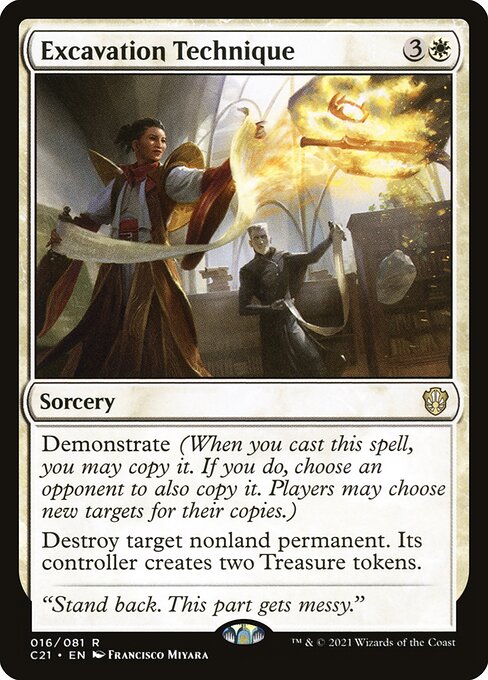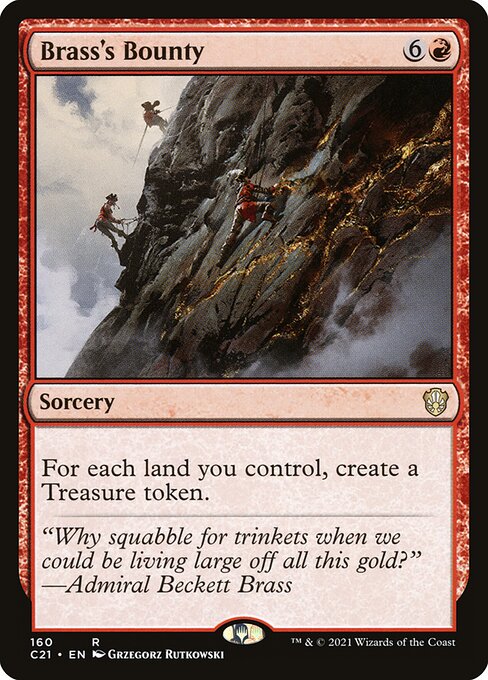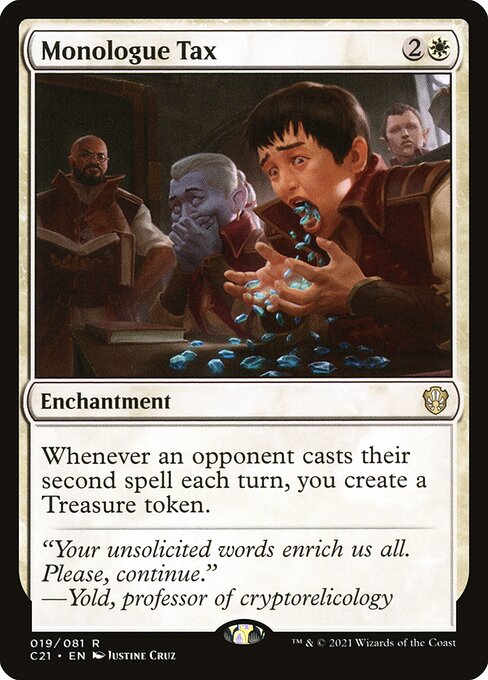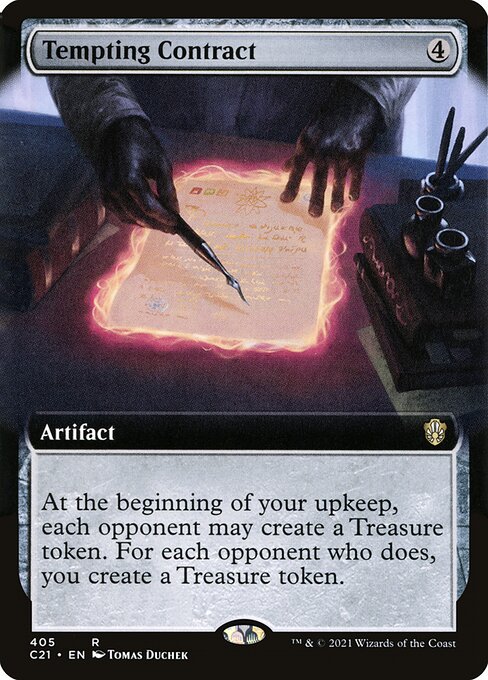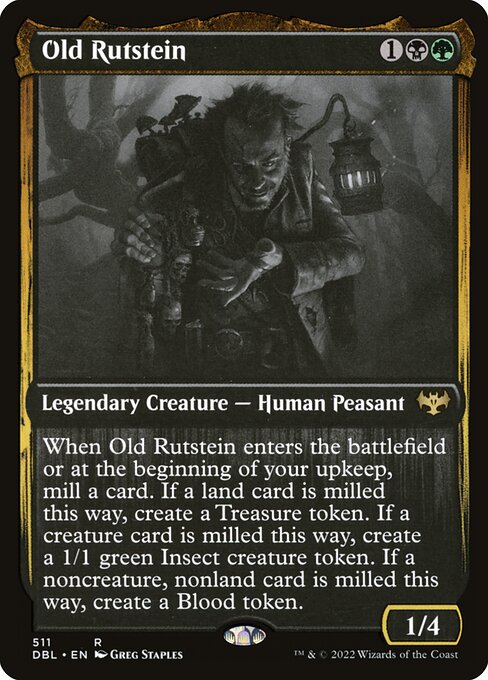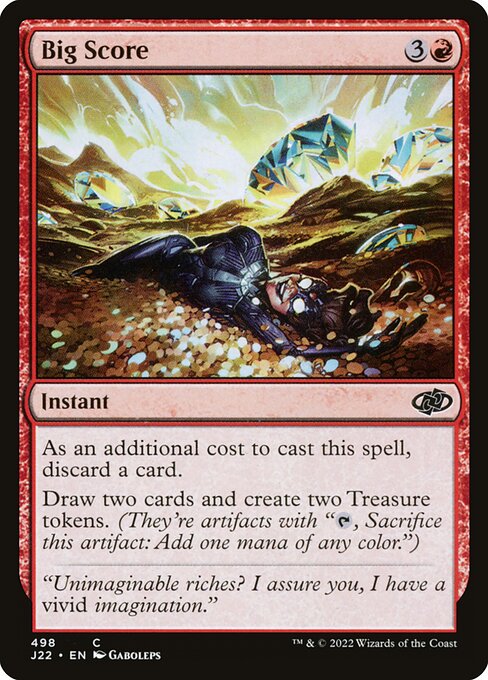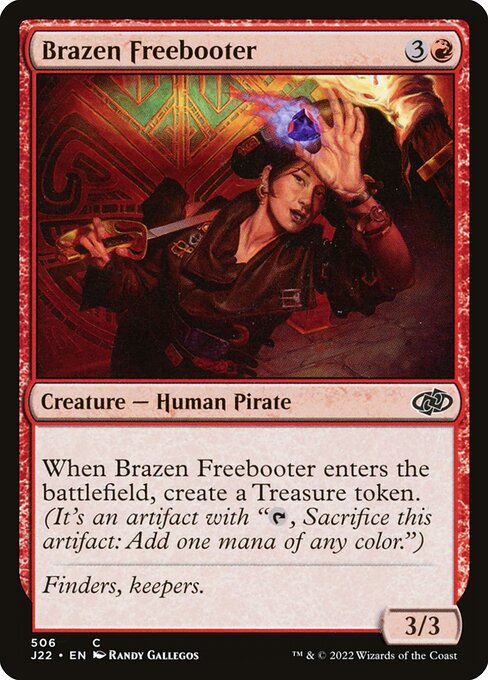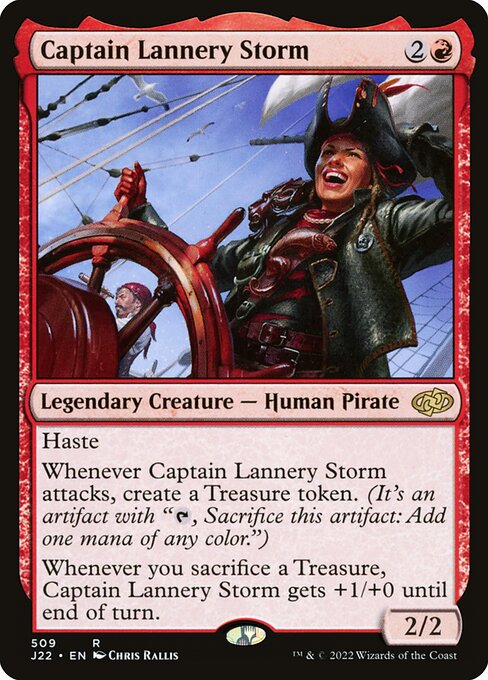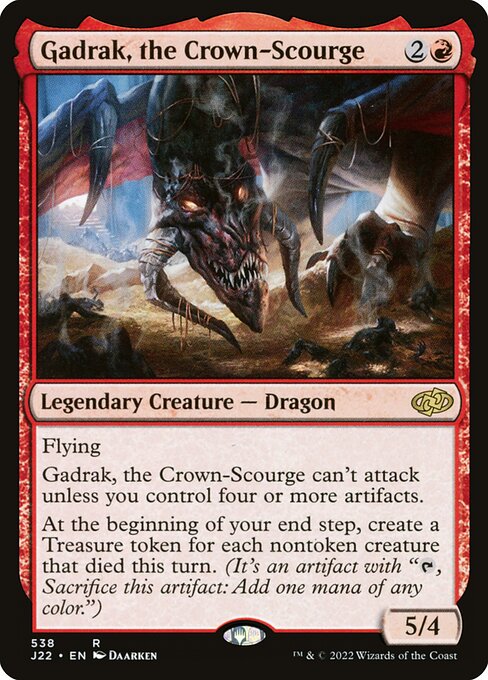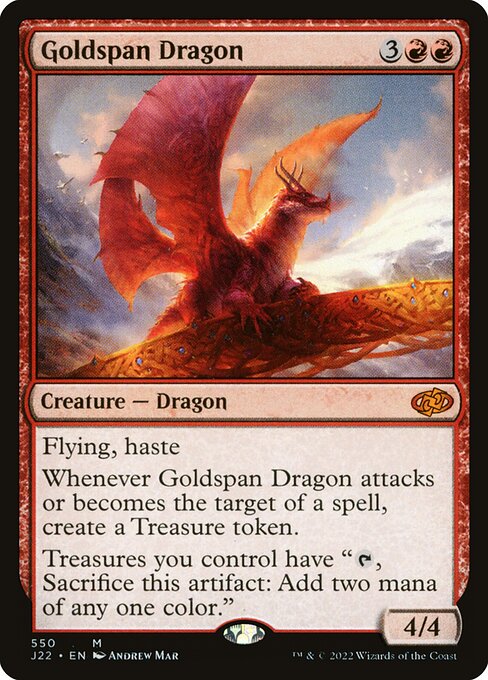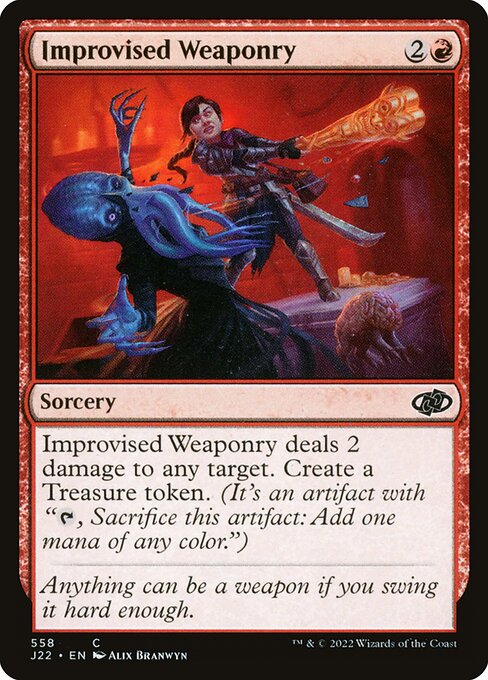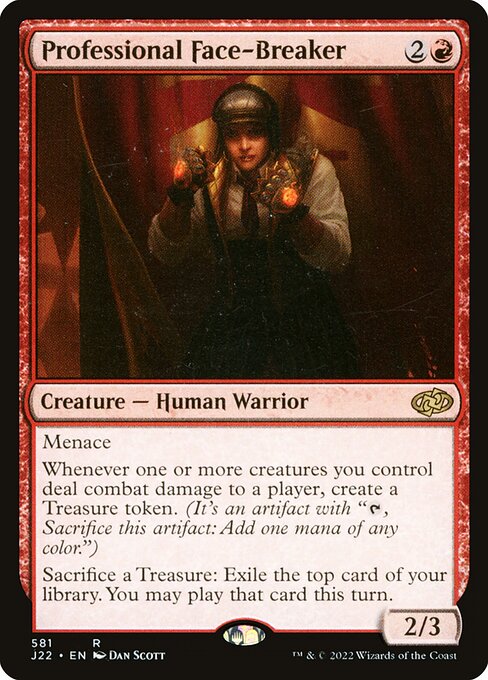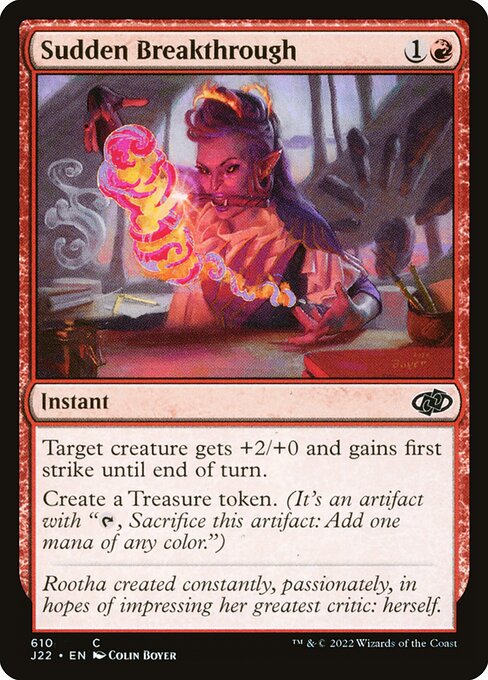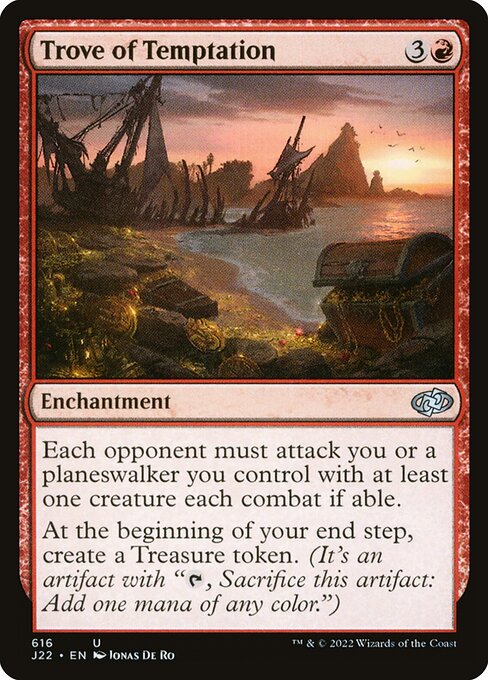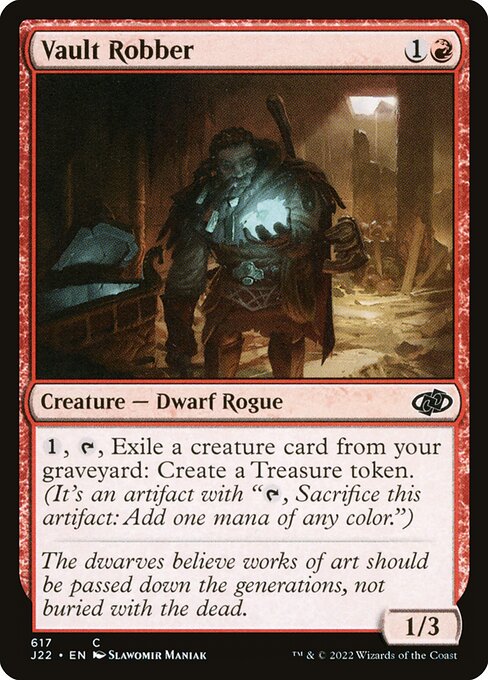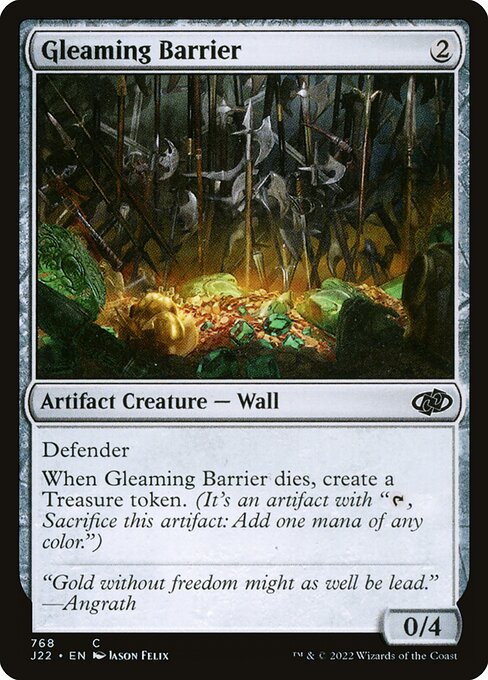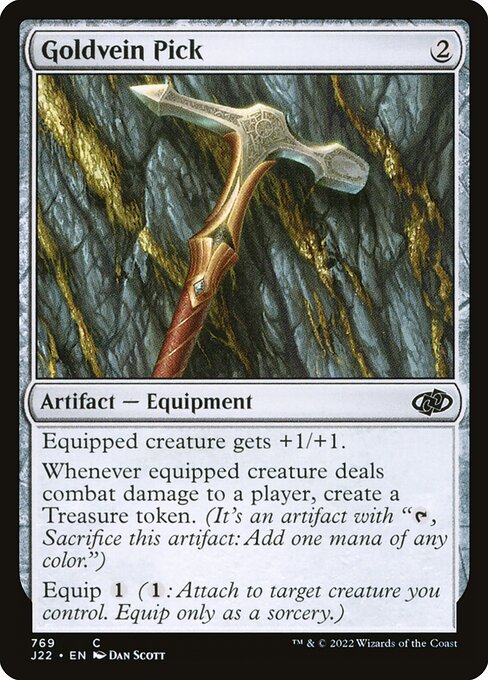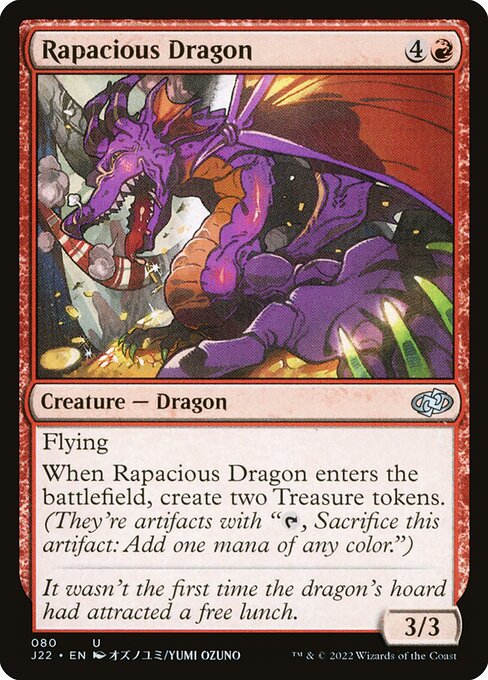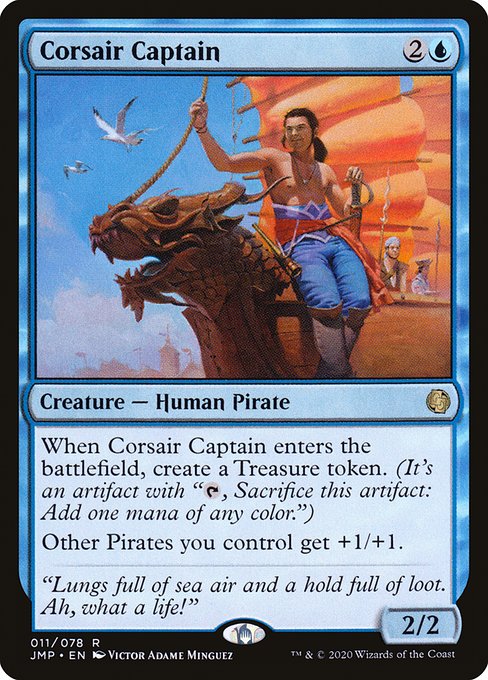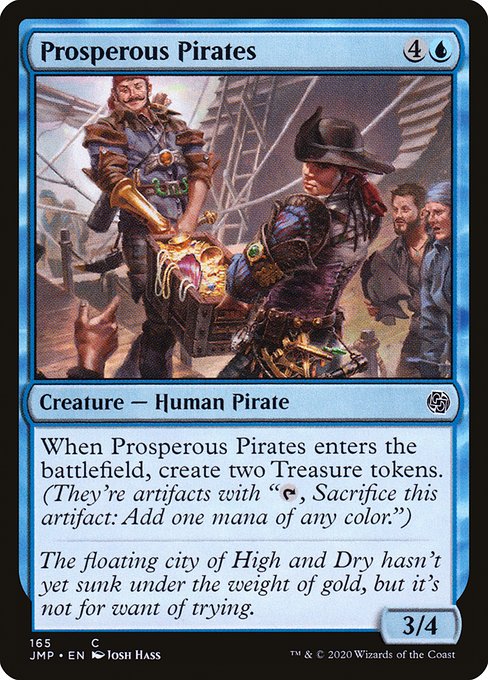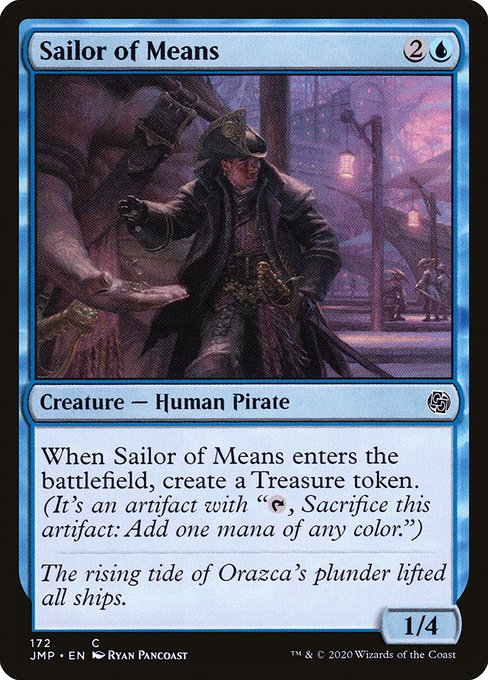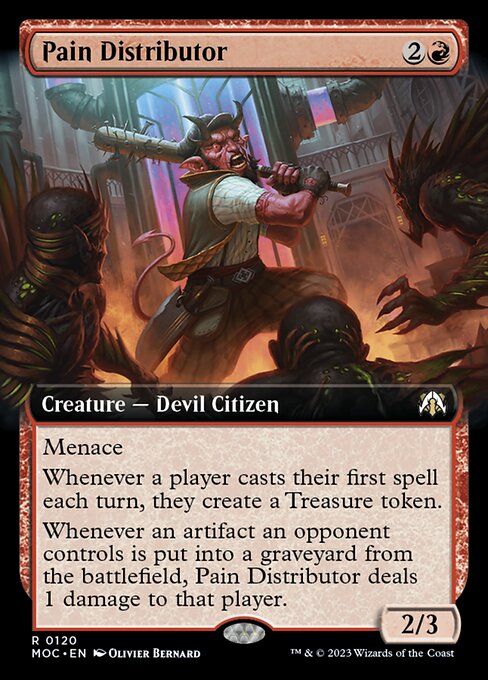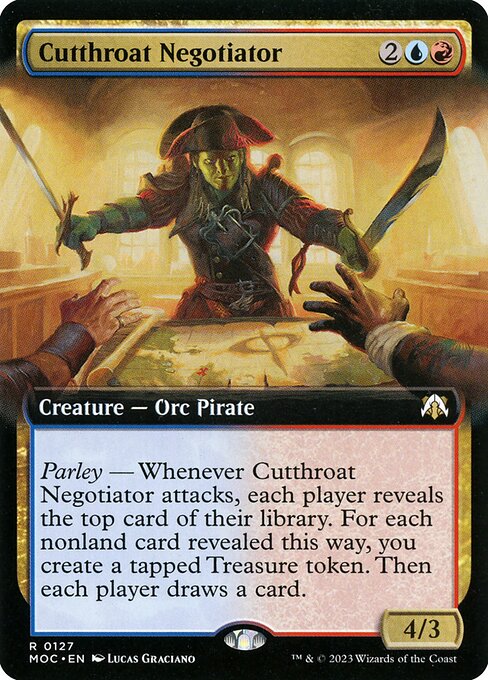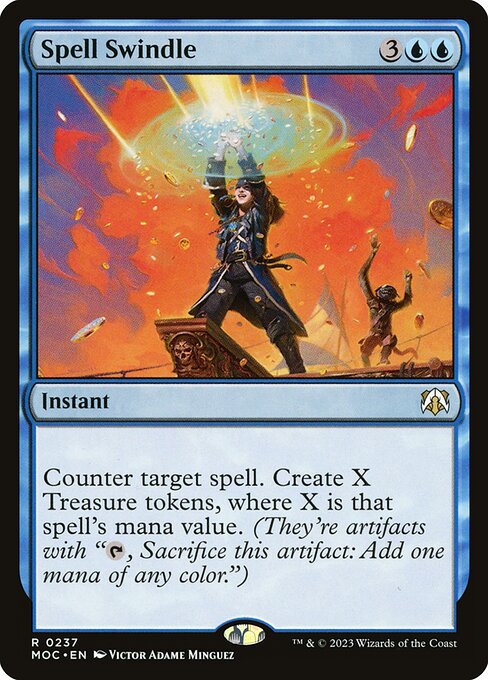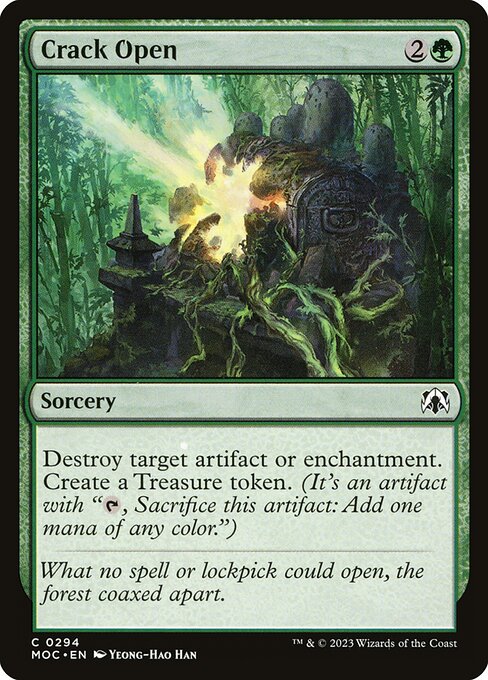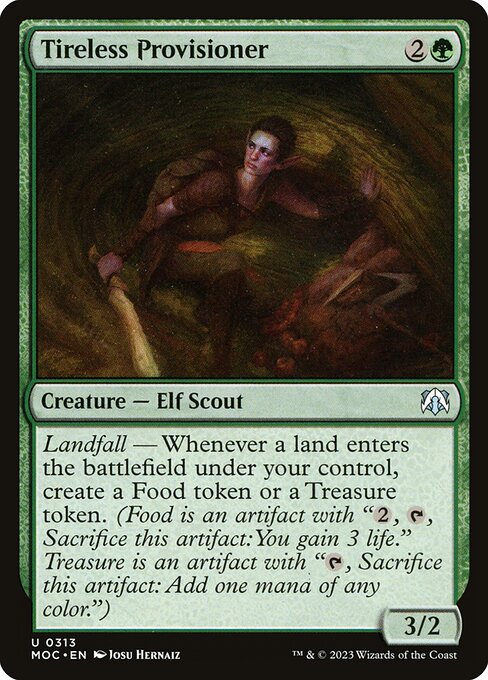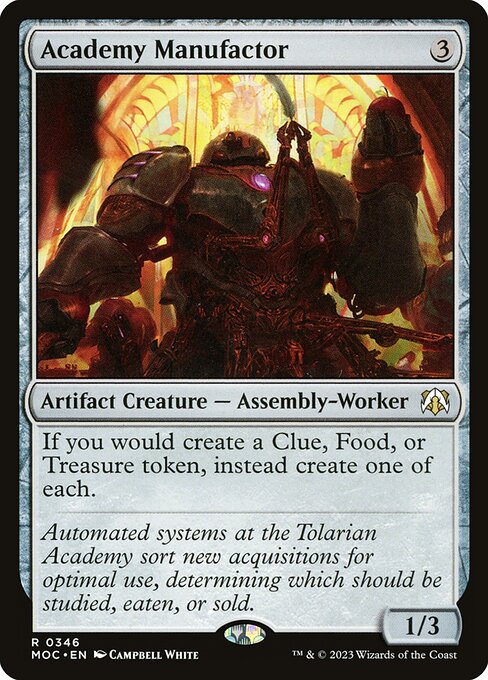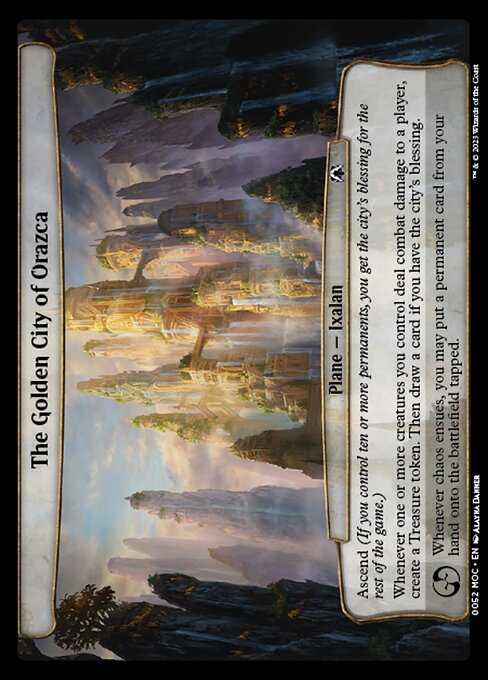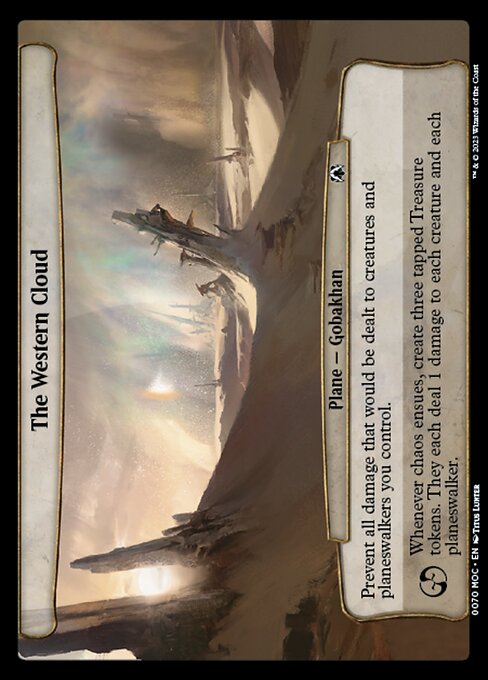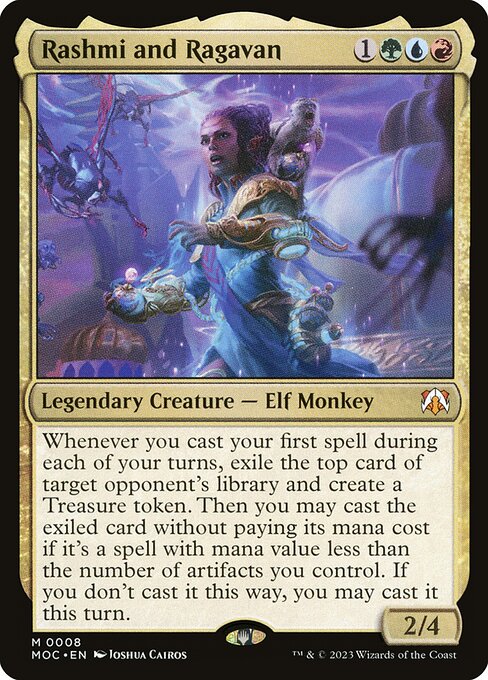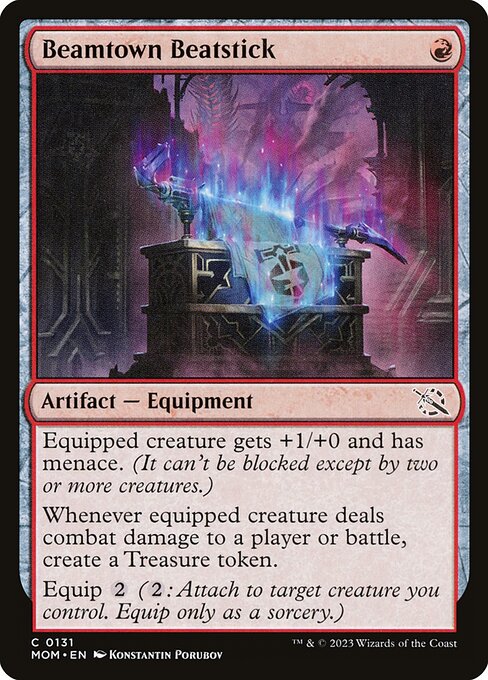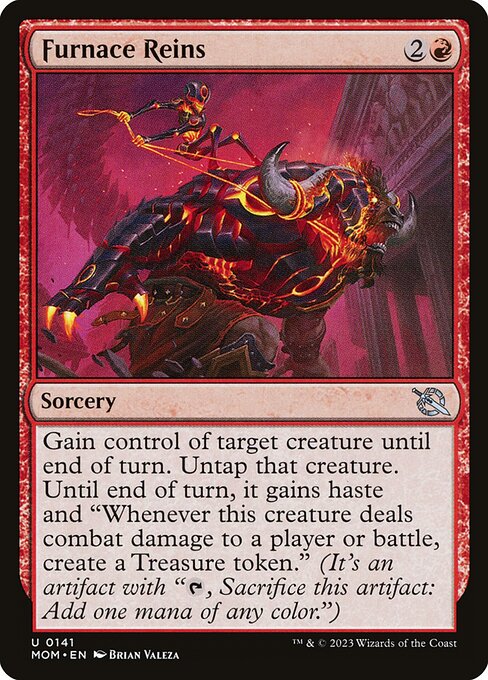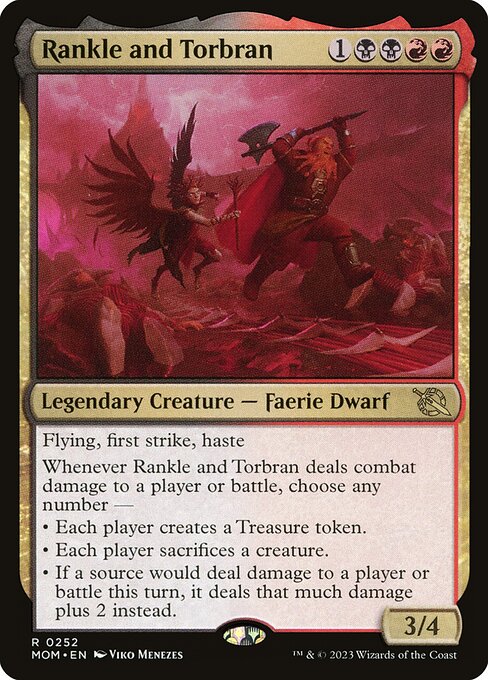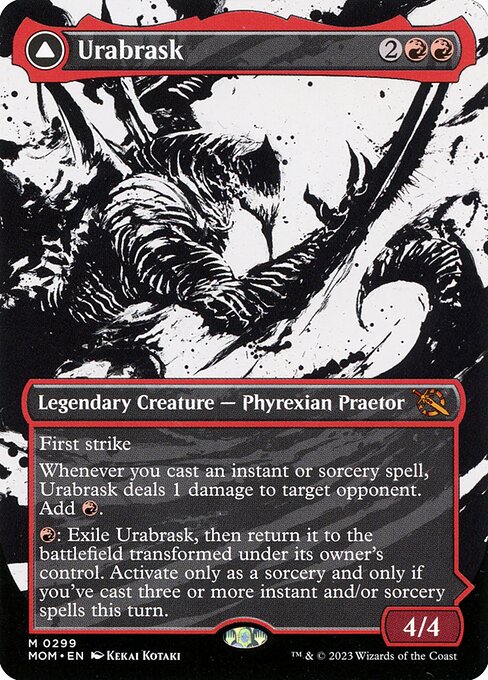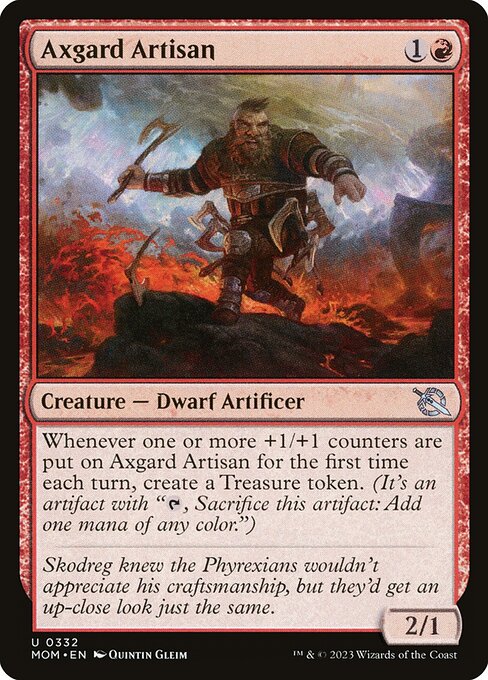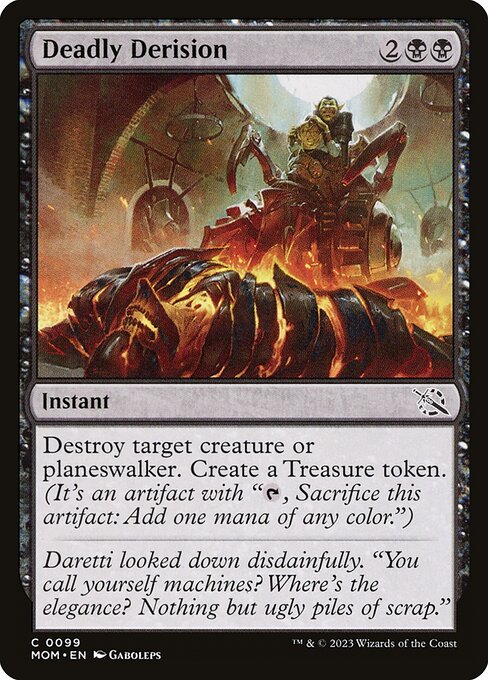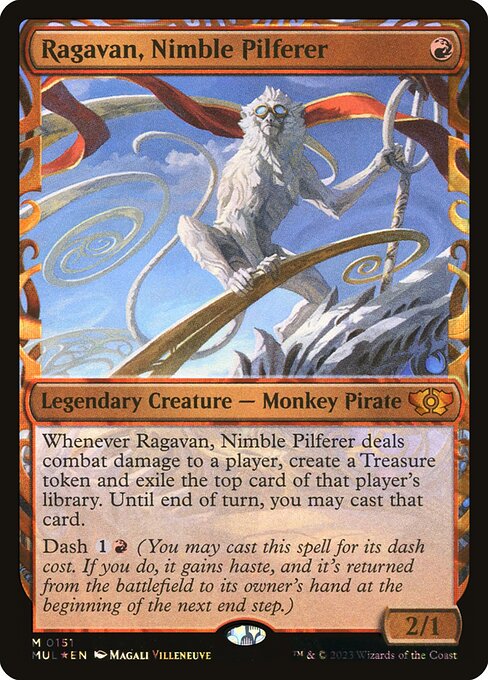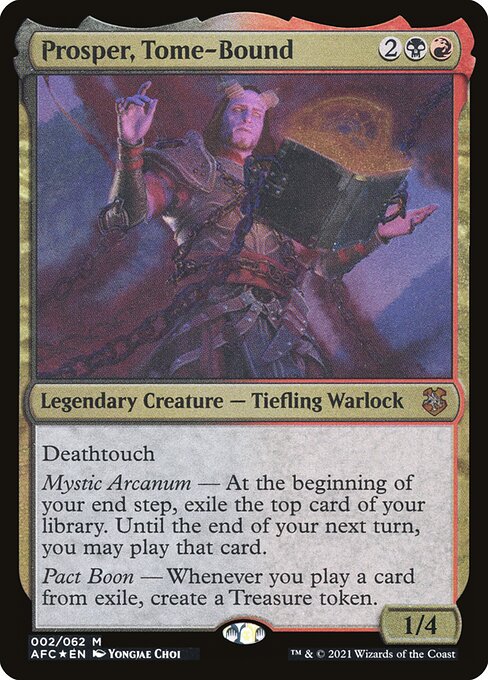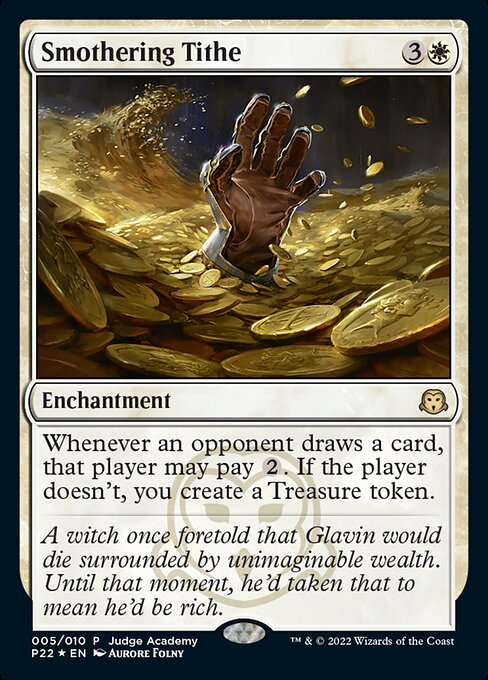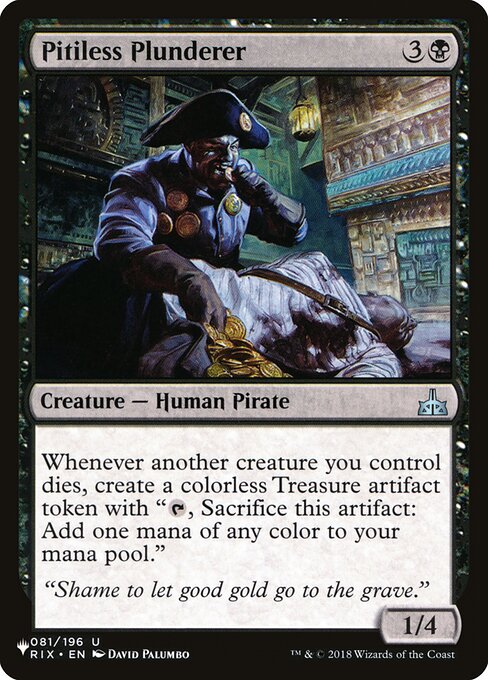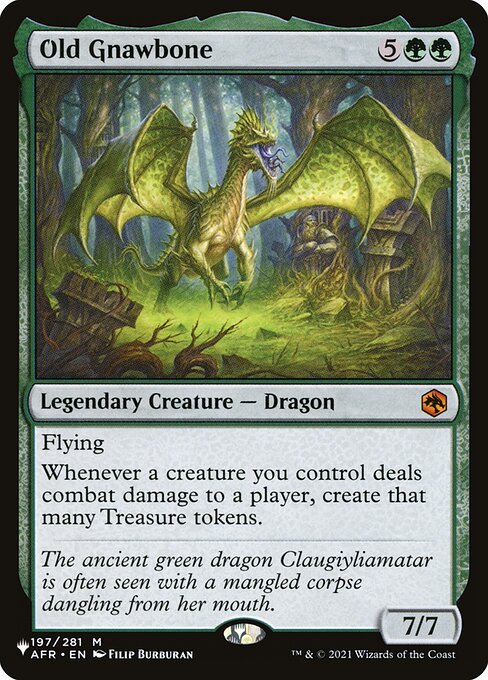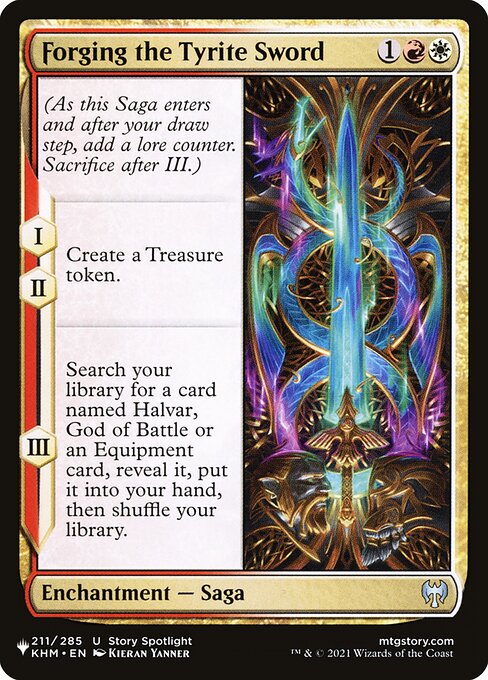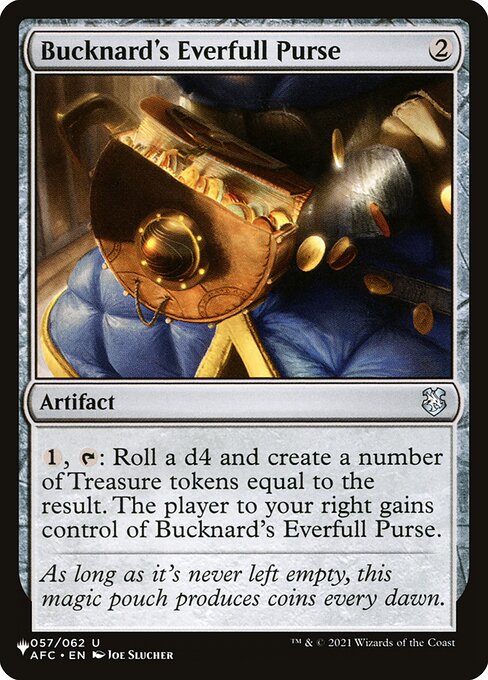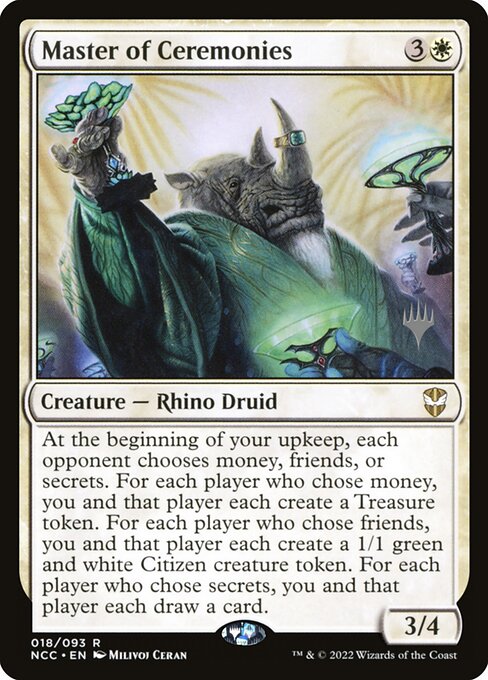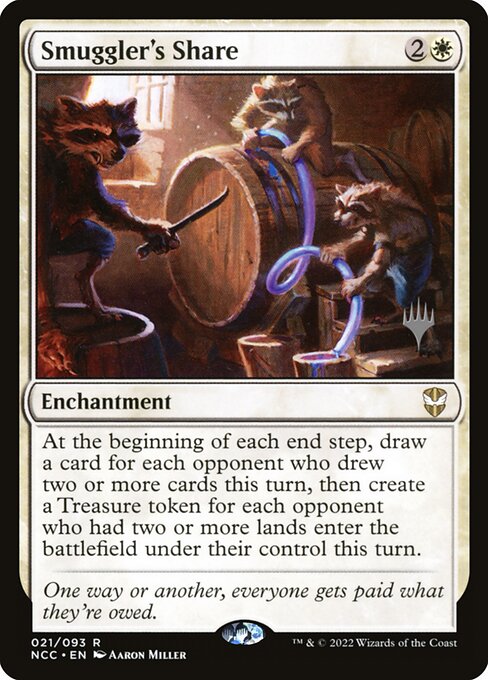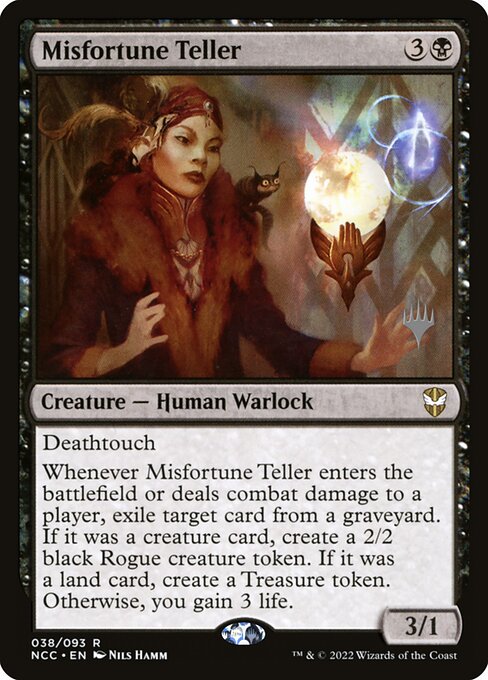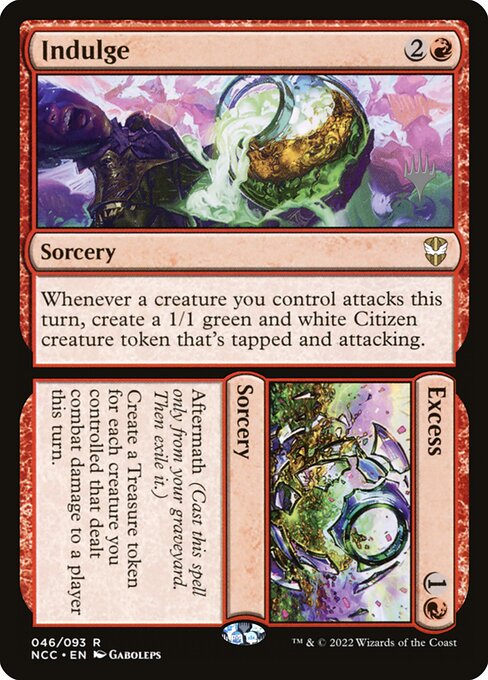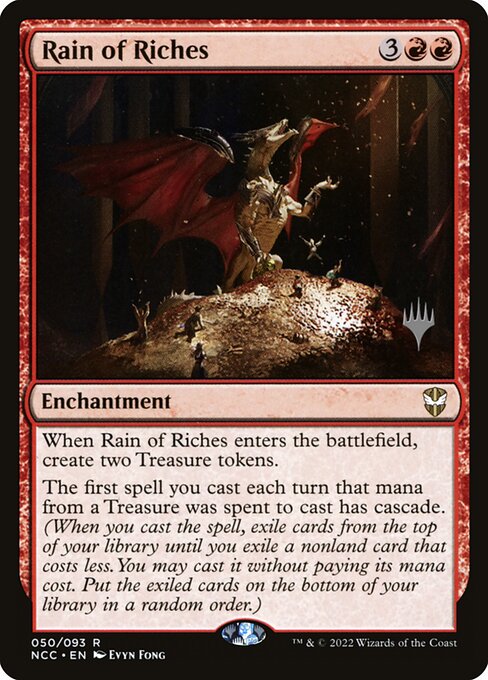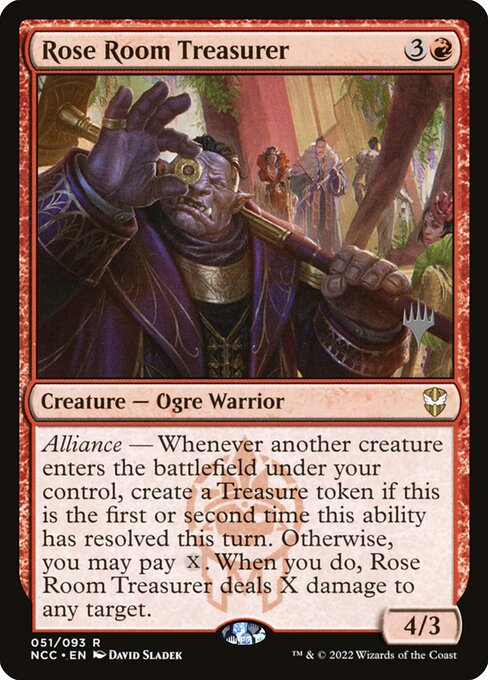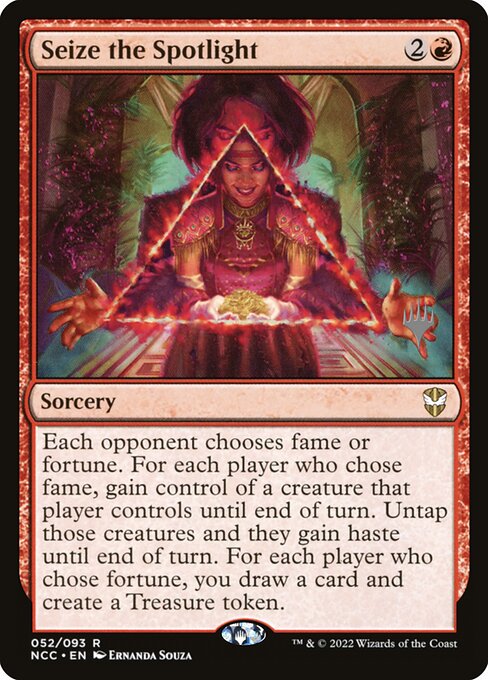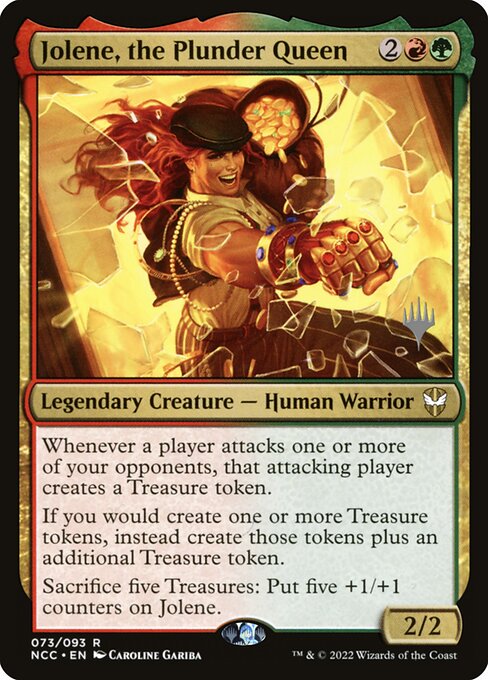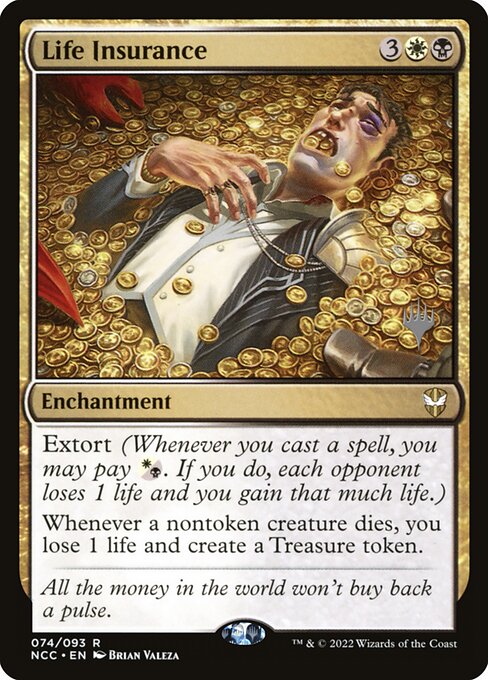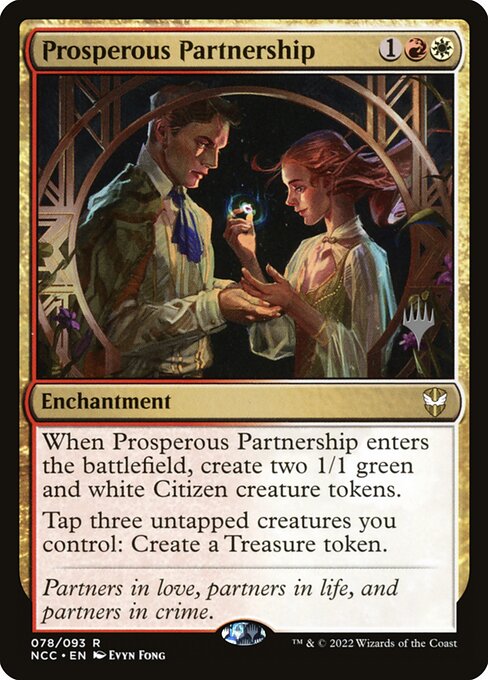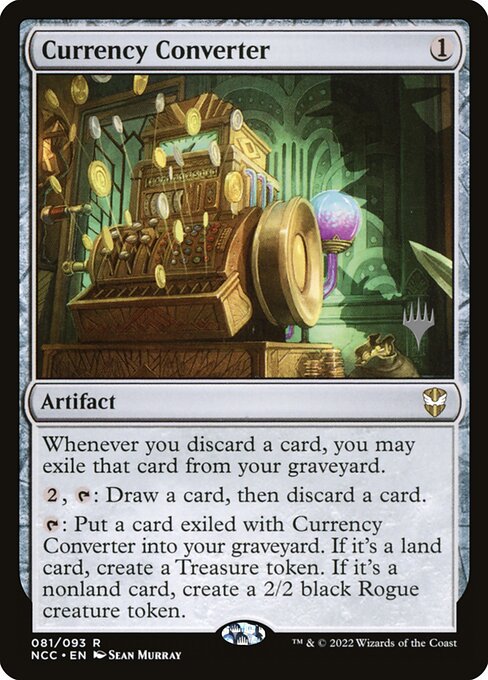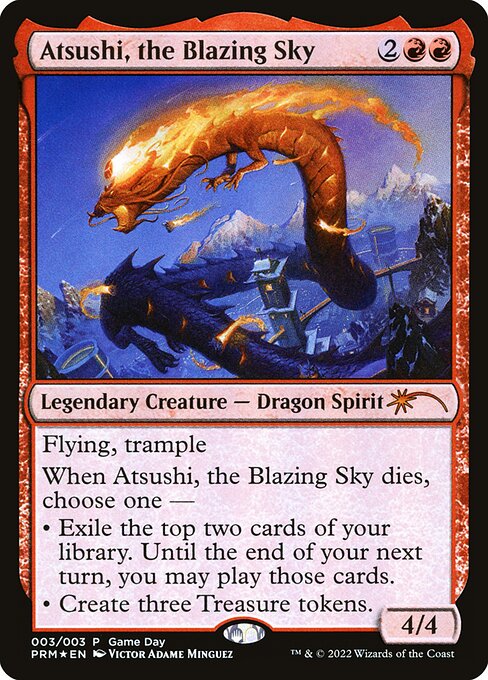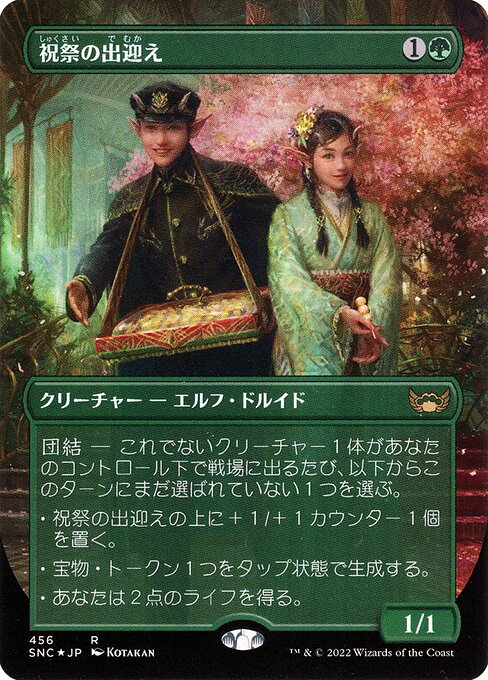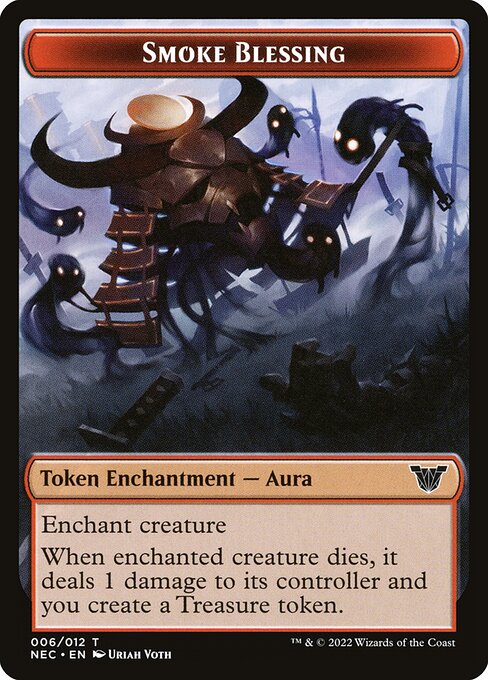Urabrask // La Grande Opera
//
Creatura Leggendaria — Pretore Phyrexiano // Incantesimo — Saga
Attacco improvviso
Ogniqualvolta lanci una magia istantaneo o stregoneria, Urabrask infligge 1 danno a un avversario bersaglio. Aggiungi .
: Esilia Urabrask, poi rimettilo sul campo di battaglia trasformato sotto il controllo del suo proprietario. Attiva solo come una stregoneria e solo se hai lanciato tre o più magie istantaneo e/o stregoneria in questo turno. // (Mentre questa Saga entra e dopo la tua sottofase di acquisizione, aggiungi un segnalino sapere.)
I — La Grande Opera infligge 3 danni a un avversario bersaglio e a ogni creatura che controlla.
II — Crea tre pedine Tesoro.
III — Fino alla fine del turno, puoi lanciare magie istantaneo e stregoneria da un qualsiasi cimitero. Se una magia lanciata in questo modo sta per essere messa in un cimitero, invece esiliala. Esilia La Grande Opera, poi rimettila sul campo di battaglia (con il lato frontale a faccia in su).
Ogniqualvolta lanci una magia istantaneo o stregoneria, Urabrask infligge 1 danno a un avversario bersaglio. Aggiungi .
: Esilia Urabrask, poi rimettilo sul campo di battaglia trasformato sotto il controllo del suo proprietario. Attiva solo come una stregoneria e solo se hai lanciato tre o più magie istantaneo e/o stregoneria in questo turno. // (Mentre questa Saga entra e dopo la tua sottofase di acquisizione, aggiungi un segnalino sapere.)
I — La Grande Opera infligge 3 danni a un avversario bersaglio e a ogni creatura che controlla.
II — Crea tre pedine Tesoro.
III — Fino alla fine del turno, puoi lanciare magie istantaneo e stregoneria da un qualsiasi cimitero. Se una magia lanciata in questo modo sta per essere messa in un cimitero, invece esiliala. Esilia La Grande Opera, poi rimettila sul campo di battaglia (con il lato frontale a faccia in su).
4/4
standard
future
historic
gladiator
pioneer
modern
legacy
pauper
vintage
penny
commander
brawl
alchemy
paupercommander
duel
oldschool
premodern
Rulings
If multiple players are allowed to cast the same card, the player with priority at any given time determines who can cast it. The player whose turn it is has priority as each step and phase begins, and they receive priority after each spell and ability resolves. This means immediately after chapter III resolves you’ll have priority to cast spells before any other player does.
Urabrask will count any instant or sorcery spells you’ve cast during the turn, whether those spells resolved, didn’t resolve, were countered, or left the stack some other way. Urabrask won’t count copies of instant and sorcery spells that were created on the stack and not cast.
After chapter III of The Great Work resolves, casting spells from graveyards follows the normal rules for casting those cards. You must pay their costs, and you must follow all applicable timing rules. For example, to cast a sorcery spell from a graveyard, you can do so by paying its mana cost only during your main phase while the stack is empty.
Urabrask’s second ability isn’t a mana ability, even though it causes you to add mana. It uses the stack and can be responded to.
Urabrask will count any instant or sorcery spells you’ve cast during the turn, whether those spells resolved, didn’t resolve, were countered, or left the stack some other way. Urabrask won’t count copies of instant and sorcery spells that were created on the stack and not cast.
After chapter III of The Great Work resolves, casting spells from graveyards follows the normal rules for casting those cards. You must pay their costs, and you must follow all applicable timing rules. For example, to cast a sorcery spell from a graveyard, you can do so by paying its mana cost only during your main phase while the stack is empty.
Urabrask’s second ability isn’t a mana ability, even though it causes you to add mana. It uses the stack and can be responded to.
Rulings
If multiple players are allowed to cast the same card, the player with priority at any given time determines who can cast it. The player whose turn it is has priority as each step and phase begins, and they receive priority after each spell and ability resolves. This means immediately after chapter III resolves you’ll have priority to cast spells before any other player does.
Urabrask will count any instant or sorcery spells you’ve cast during the turn, whether those spells resolved, didn’t resolve, were countered, or left the stack some other way. Urabrask won’t count copies of instant and sorcery spells that were created on the stack and not cast.
After chapter III of The Great Work resolves, casting spells from graveyards follows the normal rules for casting those cards. You must pay their costs, and you must follow all applicable timing rules. For example, to cast a sorcery spell from a graveyard, you can do so by paying its mana cost only during your main phase while the stack is empty.
Urabrask’s second ability isn’t a mana ability, even though it causes you to add mana. It uses the stack and can be responded to.
Urabrask will count any instant or sorcery spells you’ve cast during the turn, whether those spells resolved, didn’t resolve, were countered, or left the stack some other way. Urabrask won’t count copies of instant and sorcery spells that were created on the stack and not cast.
After chapter III of The Great Work resolves, casting spells from graveyards follows the normal rules for casting those cards. You must pay their costs, and you must follow all applicable timing rules. For example, to cast a sorcery spell from a graveyard, you can do so by paying its mana cost only during your main phase while the stack is empty.
Urabrask’s second ability isn’t a mana ability, even though it causes you to add mana. It uses the stack and can be responded to.
Votre collection ? vos decks ?
Envie de gérer votre collection et/ou créer des decks ?
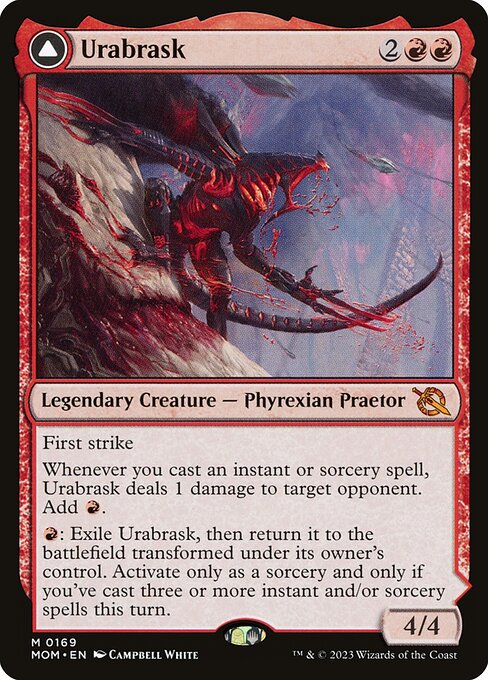

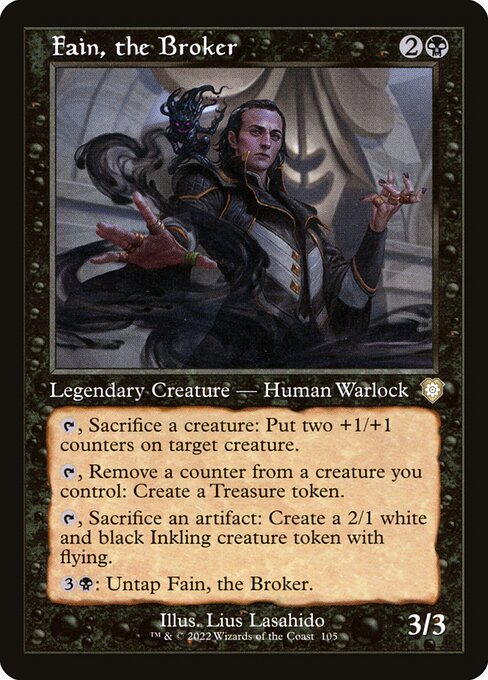

 0.48€
0.48€
